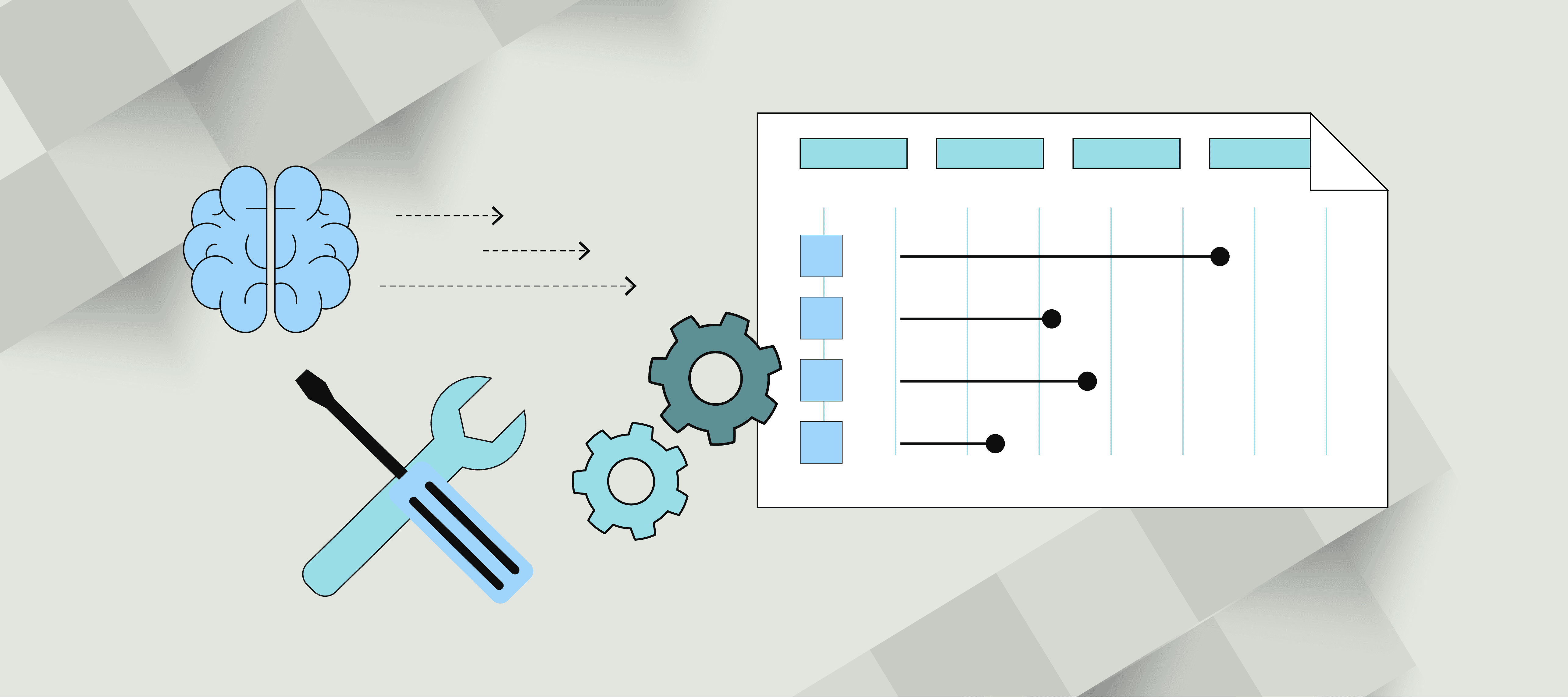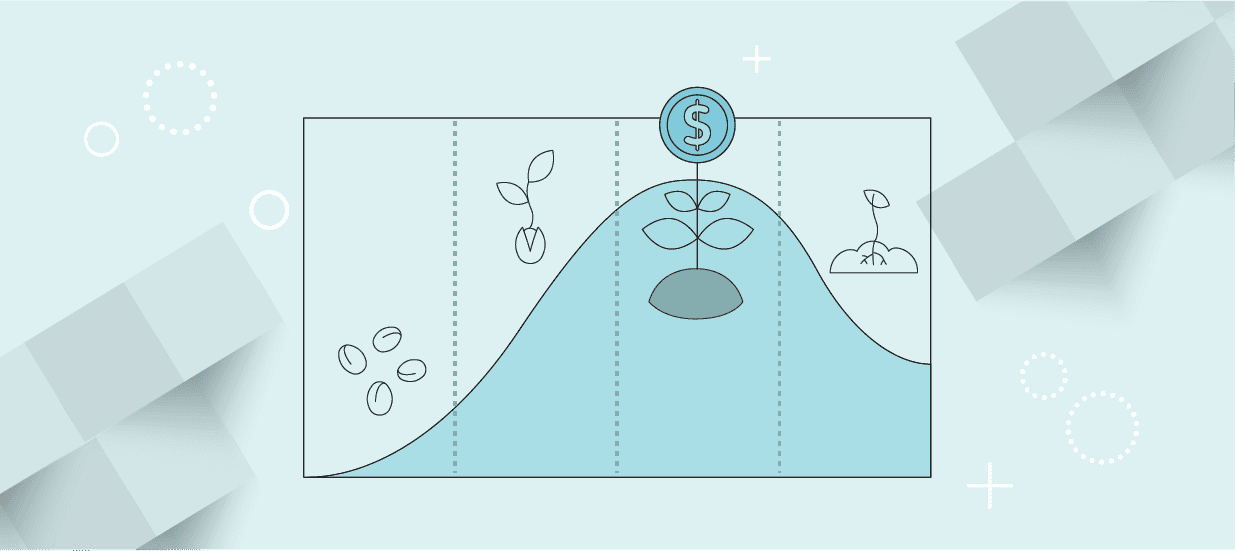Explore 50+ product manager job interview questions. Review common questions and learn strategies to answer them confidently.
Job interviews have two purposes: to ensure you are a good candidate for the role and a good fit for the company.
Most job interview processes follow the same general vetting steps. However, if you are applying to become a product manager, you can expect your interviewers to ask more specific questions.
This guide covers the 10 most common questions that product managers are asked in interviews and shares strategies for creating thoughtful answers. We also share 40+ question prompts from product experts that you can use to prepare for your interview.
Interviewing for a Product Manager Role
Product managers oversee a product’s development and life cycle. They aim to create and deliver a product that meets customer needs and generates revenue. To accomplish this, product managers might interview customers, develop product strategies and roadmaps, and ensure that the final products meet or exceed expectations.
Since product manager skills range from technical to interpersonal, you can expect to be asked different questions in a product manager job interview.
Whether you’re interviewing for your first product role or are a seasoned industry veteran, you can always benefit from preparing for your interview.
10 Common Product Manager Interview Questions (and How to Answer)
Question 1: What does a product manager do?
Answer strategy: Your interviewer wants to know if you can accurately and quickly describe the roles and responsibilities of a product manager. A sloppy answer to this question will weed out underqualified candidates. Start your response with a 1-2 sentence description of what a product manager does. Then, cite a few examples of critical tasks and responsibilities. Wrap it up by explaining the value that product managers deliver for product teams, customers, and the company. Check out this comprehensive guide on the difference between a product manager and a product owner to help add color to your response.
Question 2: Suggest a new feature for a product.
Answer Strategy: This question asks for a product case study. If your interviewer gives you a specific example (such as “Design a new app for travelers who are going to take their first international trip”), ask clarifying questions to understand their goal better. If the question is open-ended, start with your suggestion (“Add a feature that allows users to see their past performance data”). Identify the end user – this is your target customer. Then, cite use cases or gaps in the market. Be sure to frame these as pain points for the target customer. Then, explain the solution and prioritize design ideas. Finally, conclude with how you would define and measure success. This guide has comprehensive steps with examples on answering a product case study interview question (plus more!)
Question 3: How would you coordinate a redesign of our product?
Answer Strategy: This question lets you show your understanding of product management processes. Start with the building blocks – explain why the product might need a redesign and how you would validate that. Then, present your approach to developing a product strategy, building a roadmap, and getting buy-in from key stakeholders. At a high level, describe how you would work cross-functionally to launch the product redesign. Apply your knowledge about the company’s internal teams and processes.
Question 4: Tell us when you used data to make a product decision.
Answer Strategy: With this answer, you need to show that you can and use data to guide product choices – instead of just going off gut instinct. Start your answer by explaining the task choice you had to make. Then, discuss the kind of data you needed to inform that decision, how you gathered it, and how you analyzed it. Explain the conclusion you came to and how that influenced the final decision. If your interviewer asks this question, they are probably more concerned with how you approach analytical problem-solving and less concerned with the specific tools or data sources you used.
Terry Sadowski, a Pragmatic Institute instructor with over 35 years of product leadership experience, shared this advice for product manager interviews: “Showcase your analytical skills by discussing how you’ve used data to make informed decisions and navigate challenges. When providing examples, use the STAR method – detail the Situation, describe the Task at hand, explain the Actions you took, and highlight the Results you achieved. This structured approach not only helps communicate the impact of your work clearly but also aligns with trained interviewers’ expectations, allowing you to score points by making it easy for them to follow your thought process.”
Question 5: How do you prioritize tasks?
Answer Strategy: This is a deceptively simple question. Product managers have challenging jobs, and this question will show how you juggle different products, priorities, and timelines. There’s no correct answer, but we recommend showing nuance in your answer and noting when a specific criterion for prioritization may not work.
Question 6: What’s your approach to communicating project updates across teams?
Answer Strategy: With this answer, you want to show that you communicate appropriately with different teams and stakeholders. In your answer, explain how you tailor information to those teams, including the platforms or communication channels you use. Show that your communication choices are appropriate for the partners and stakeholders you are communicating with.
Question 7: Why do you want to work with us?
Answer Strategy: Research the company and understand what they do before your interview. It may sound basic, but this is a critical first step that many job candidates neglect. A thoughtful answer shows that you invested in learning about the company and can envision how you fit into the larger picture.
Question 8: What is the role of AI in product management?
Answer Strategy: AI is quickly transforming the workforce, particularly for product teams. Your interview is an opportunity to show your adaptability to change and confidence in your ability to integrate new technologies into your work. Highlight ways AI can make product managers faster, more efficient, and more creative (be careful not to sound overly reliant on it to do your work, though). If possible, cite specific instances when you’ve used AI.
Question 9: What’s more important – completing a product on time, or completing a product as planned?
Answer Strategy: Your answer to this question is an opportunity to demonstrate your nuanced understanding of product teams’ competing priorities and demands. Your interviewer probably won’t be looking for a binary answer. Instead, it will help if you demonstrate your ability to reason through different choices and explain the factors that influence your decision.
Question 10: Where do you see yourself in 5 years?
Answer Strategy: Although this question isn’t unique to product management, it’s important to give a thoughtful answer. This is an opportunity to summarize your career so far and explain what you want to accomplish. Finally, remember that you’re still interviewing! Touch on how job you’re interviewing for fits into your career trajectory, and how it will help you use and build your skills.
Practice Product Management Interview Questions
During your product manager interview, you’ll get questions that cover your professional background, experience in product management, and possibly some questions about your personality and hobbies! Be prepared to answer all of these questions honestly and thoughtfully.
Personal and Career Background
These questions aim to understand your personal background, career path, motivations, and alignment with the company’s culture and values.
- Tell me about yourself.
- How did you hear about this role?
- What do you know about our company?
- Why did you leave your last position?
- Why are you looking to leave your current position?
- Why do you want to work here?
- What are your career goals?
- Where do you see yourself in 5 years?
- What do you do outside of work?
- What motivates you?
- How do you define work-life balance?
- What is one word your coworkers would use to describe you?
Product Management Skills and Experience
These questions assess your product management skills, work experience, and specific approaches to product management.
- Explain product management like I’m 5.
- What’s your approach to product management?
- Tell us about the product(s) you manage.
- Describe a good user interface.
- How do you create a product roadmap?
- How do you develop a product strategy?
- What product development method does your current company follow?
- What is your preferred product development methodology?
- Describe a time when you had to say no to an idea or product.
- Walk me through managing a product feature from conception to launch.
- How do you define a successful product?
- How do you know if a product is well-designed?
Analytical and Strategic Thinking
These questions evaluate your ability to think critically, analyze complex problems, and strategize effectively.
- What is one improvement you would implement for our product in your first 3 months?
- What is a major opportunity our company faces in 12-24 months?
- What is a major threat or challenge our company faces in 12-24 months?
- How would you increase the adoption of X feature?
- Our company is looking to expand into X market. What challenges and opportunities do we face?
- Our metrics are down. How would you determine the root cause?
- Tell us about a time you used data to make a decision.
- How do you prioritize resources when you have two important things to do but can’t do them both?
Soft Skills – Communication, Teamwork, and Leadership
These questions explore your interpersonal skills, leadership experience and philosophy, and ability to work collaboratively.
- How would you describe your communication style?
- How do you like to receive feedback?
- How do you like to share feedback?
- Tell us about a time when you failed. What did you learn from it?
- What leadership quality do you value most?
- What’s the best way to work with executives or stakeholders?
- What’s the difference between leadership and management?
- Have you ever disagreed with a teammate? What was the outcome?
- What kinds of people do you like to work with?
- What kind of people do you have trouble working with?
- What do you need from your manager to be successful?
- What is your philosophy about building diverse and equitable product teams?
- How do you foster creativity and innovation on your team?
Adaptability and Remote Work Dynamics
These questions investigate how you adapt to new work environments and manage collaboration in remote or hybrid settings.
- Do you have experience working in a remote or hybrid environment?
- How would you face the challenge of managing a team across time zones?
- What are some challenges to working remotely or in a hybrid environment?
- What tools or systems can help remote or hybrid teams manage projects?
- Describe your approach to communication after standard working hours.
Tips for the Product Manager Interview Process
The job interview process has multiple stages. It often starts with exploratory interviews with recruiters or HR personnel and escalates to interviews with the hiring manager, panels of potential new coworkers, and interviews with executive leadership. High-growth or innovation-focused companies may have a more rigorous vetting process. Some may even ask candidates to complete a skills assessment or assignment.
Regardless of where you are in the interview process, tailor your responses to fit your interviewer. There are better times to show off your deep technical knowledge than an initial call with a recruiter. Instead, save that for a panel interview, especially if they ask you to do an assignment or exercise. On the other hand, if you get to the point where you’re interviewing with Product leadership, you’ll want to demonstrate leadership skills, business savvy, and technical expertise.
Regardless of your question, make sure you think through the answer. If needed, ask for clarification. Don’t be afraid to say, “That’s a great question – let me consider that for a moment” while you gather your thoughts. Taking a few seconds to craft an appropriate and thoughtful answer is always better than an off-the-cuff response that doesn’t address the root question critically. Above all, be honest! If you don’t have an answer and are stumped, say, “I don’t know. I would love to think about that and follow up with you.”
For analytical and theoretical questions, there is no correct answer. You should respond thoughtfully and show the interviewer how you reach logical conclusions to complex challenges.
Additional Product Manager Resources
- Are you just starting your product management career? Learn about different roles and career paths in product management with Product Management: From Your First Job to Your Last Job
- Feedback from real customers should inform your product roadmap. Learn How Customer Visits Reveal the Why Behind Your Roadmap:
- Congrats! You’re lucky enough to interview with the VP of Product. Before your interview, take time to understand What Does the VP of Product Really Do?
- AI has many uses for product managers, but taking the first steps to master it can be challenging. We explain How to Learn AI as a Product Manager
Author
-

The Pragmatic Editorial Team comprises a diverse team of writers, researchers, and subject matter experts. We are trained to share Pragmatic Institute’s insights and useful information to guide product, data, and design professionals on their career development journeys. Pragmatic Institute is the global leader in Product, Data, and Design training and certification programs for working professionals. Since 1993, we’ve issued over 250,000 product management and product marketing certifications to professionals at companies around the globe. For questions or inquiries, please contact [email protected].
View all posts








